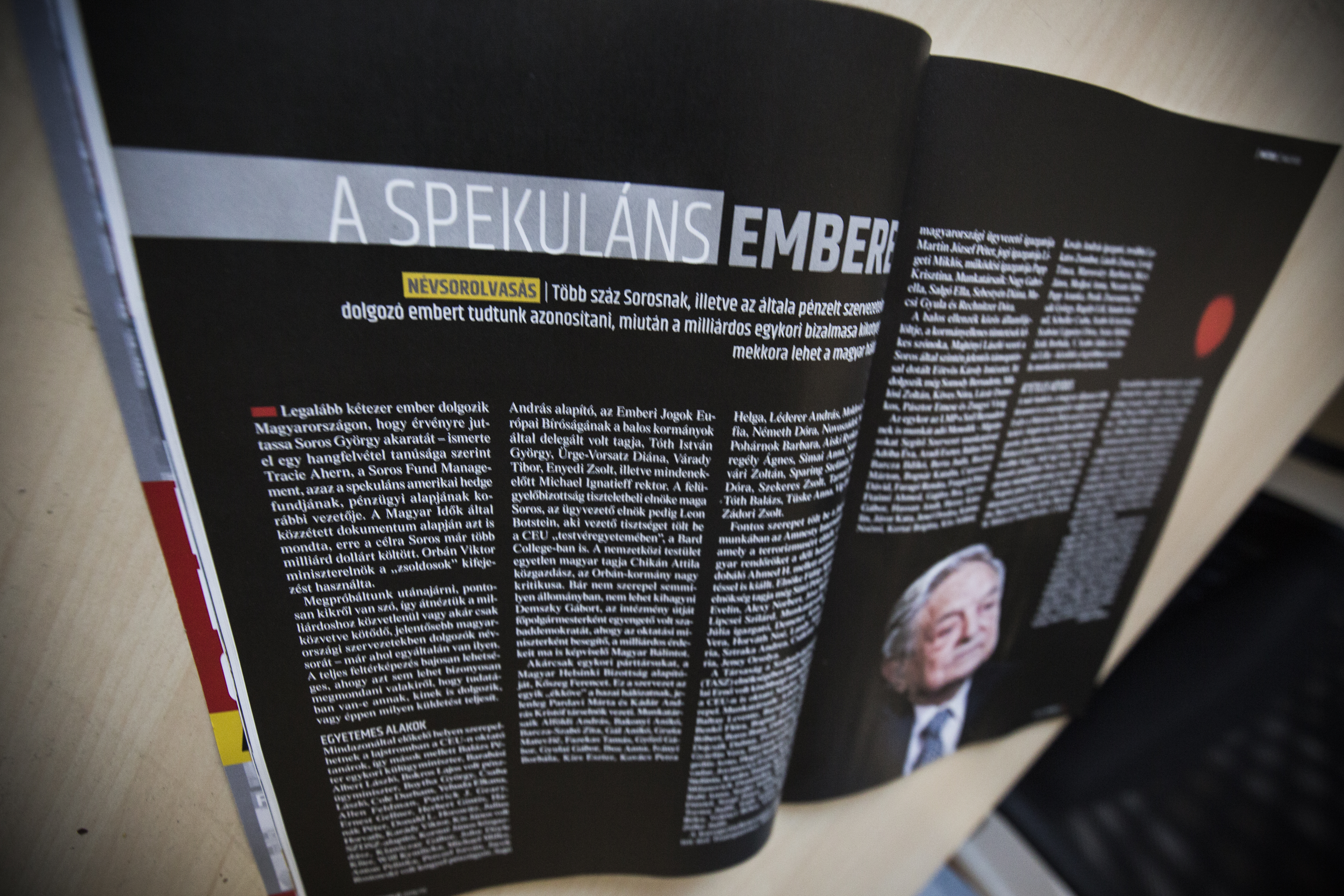State of Emergency declared as coronavirus cases reach 16
- Stay updated on the latest news from Hungary by signing up for the free InsightHungary newsletter:
The Hungarian government declared a countrywide state of emergency on Wednesday and announced extraordinary measures for countering the growing number of coronavirus cases.
Among the emergency measures was a travel ban on all foreign citizens traveling from Iran, Italy, South Korea and China. Hungarian citizens traveling from those countries will be permitted entry but will be required to remain in home quarantine for two weeks.
The state of emergency is issued for 15 days, after which it can be extended by Parliament. Other emergency measures include:
- the closing of all universities and emptying of dormitories. Schools will remain open because the virus is less dangerous to children, according to Prime Minister Viktor Orbán's chief of staff Gergely Gulyás
- banning indoor public events of over 100 people and outdoor events of more than 500 people. This includes theatres, cinemas and larger clubs and bars, but does not include shopping centers. Sports matches will be played to empty stands. (Earlier, events for Hungary's March 15 national holiday were also cancelled)
- introducing border checks at the Slovene and Austrian borders
- cancellation of all school trips abroad, and the postponement for one year of the government's foreign language study abroad program
- government ministers and state secretaries may only travel abroad with special permission.
Gulyás said the state of emergency will remain in effect until it is lifted by government order, which could take weeks or months. The measures are intended to limit the spread of the virus and make it possible for the government to order home quarantines and to close international borders as necessary. Those giving false information to authorities concerning their recent travel history will be subject to criminal prosecution, he added.
The government advised citizens to avoid crowded spaces and to work from home if possible. Gulyás said that under the state of emergency, self-isolation could be enforced by police if needed. He added that the government considers the 37 laboratories currently performing Covid-19 tests to be sufficient according to guidelines from the World Health Organization.
According to the government's coronavirus website, there were 16 confirmed cases as of Thursday afternoon, including nine Iranian citizens, one British citizen, and six Hungarians. Sixty-five people were in quarantine and 730 samples were being tested for the virus. No deaths have yet been reported.
At a press conference on Wednesday, the Hungarian Chamber of Doctors called on the government to provide equipment that will protect healthcare workers against coronavirus. The doctors said that the surgical masks being provided could prevent someone infected with the virus from transmitting it, but are ineffective in protecting healthcare providers that are working closely with infected patients.
The Human Resources Ministry reacted to the doctors' requests by saying that they "were blackmailing and making false claims during a state of emergency".
Economic Minister Mihály Varga said on Wednesday that the virus could cause an economic recession in Hungary as tourism plummets and production of commodities slows. Additionally, consumer spending could drop as workers miss out on wages.
According to estimates from the Hungarian Tourism Agency, an 85% drop in tourism could be expected by Easter as flights to Europe have already been reduced by 89%. All reservations at Budapest harbors by companies operating river cruises on the Danube have been cancelled, and no such ships are expected to arrive in the city until at least April. Around 24% of hotel bookings by foreign citizens for the three months of spring have been cancelled, a number that is likely to rise as cases of the virus increase and the World Health Organization has declared coronavirus a global pandemic.
On Tuesday, Orbán told EU leaders that there was a "clear link between the coronavirus outbreak and illegal immigration", since some migrants come from or pass through Iran, which has been heavily affected. Of the nine Iranian citizens with positive cases in Hungary, all are in the country legally.
By Monday, the government had allocated more than 8 billion Ft (~€24 million) toward coronavirus response.
Fidesz-tied magazine must pay damages for publishing list of "Soros mercenaries"
A Budapest court has ordered weekly magazine Figyelő to pay damages to two plaintiffs whose names appeared on a list of civil society workers, journalists and politicians the magazine published in April 2018.
The two-page list included the names of "mercenaries" the author wrote were "working directly or indirectly for the billionaire [George Soros]". Among the names were
- Central European University educators
- Hungarian Helsinki Committee workers
- Amnesty International colleagues
- Hungarian Civil Liberties Union (TASZ) colleagues
- Transparency International workers
- Eötvös Károly Institute workers
- Menedék Foundation employees
- K-Monitor and Direkt36 journalists
The publisher of Figyelő, the Central European Press and Media Foundation (KESMA), must pay 500,000 Ft (€1,480) to each plaintiff, who were represented by the Hungarian Helsinki Committee and the Hungarian Civil Liberties Union (TASZ). The court ruled that the plaintiffs do not qualify as public figures and had no opportunity to respond to the media attacks, which caused adverse consequences to their private lives.
More than 200 schools protest against new national curriculum
Controversy around the new National Core Curriculum continues to grow as 211 schools from 65 towns and cities have expressed their opposition to the plan that the government publicized in January.
Primary and middle schools make up most of the institutions on the list of opponents, while numerous university departments, 18 educational organizations and education experts have also condemned the curriculum. Opponents demand that the curriculum not be introduced in September as planned, but be replaced by a new framework developed through more thorough social dialogue and based on professional consensus.
At the end of February, Human Resources Minister Miklós Kásler said that only seven schools had opposed the curriculum and dismissed the proportion of its opponents as insignificant.
City Hall could ban sexist billboards in Budapest
Two Budapest deputy mayors have initiated a ban on sexist billboards appearing on city-managed advertising surfaces.
Erzsébet Gy. Németh and Kata Tüttő wrote in a joint statement on Sunday (International Women's Day) that "women's bodies are not commodities!"
"As human beings and as female deputy mayors, we do not accept that advertisements using women's bodies as ad surfaces line the streets of our city day after day," they wrote. "Budapest is a European city where we should not allow women to be objectified!"



